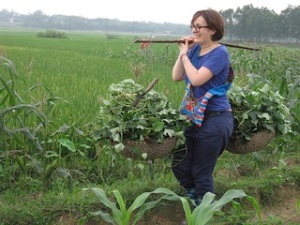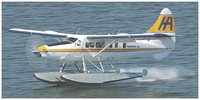More than four months ago we discussed the possible impacts of the EU emissions trading scheme on shipping emissions. This was effective as of the first day of the current year. Specifically, this was considered to impact substantially the operations of the Freeport Terminal at Birżebbuġa. Earlier this week government announced that it had commissioned a study intended in part to address these impacts as part of a much broader exercise that seeks to quantify the challenges Malta has to face as an island state on the periphery of the European Union.
The EU emissions trading scheme seeks to align the shipping industry with the Paris Climate targets, that is, ensuring that the global mean temperature does not rise to more than 1.5 degrees Celsius above the pre-industrial age temperature. This is done by making use of environmental taxation in order to encourage innovation and consequently through new technology to reduce emissions thereby contributing to a reduction of the projected global increase in temperature.
When the EU emissions trading scheme was updated to be applied to shipping, the Labour government’s representatives on the various EU structures did not in any way indicate that Malta was not in agreement. This signifies that there was either approval or else the Maltese representatives were fast asleep when the matter was approved.
There was ample time for government to plan, yet it remained silent and only now, after the event, it is commissioning reports and studies to address the resulting challenges!
The basic challenge that we must face very urgently is the alignment of our economy with our environmental responsibilities. This is not only evident in shipping but it is also very clear in the tourism industry. It is not an issue that can be solved through state aid. It rather requires a clear green vision which unfortunately the Maltese state, as currently led, does not have.
This week we have been told by the industry that tourism numbers will be approaching 3,200,000 this year. This is not good news. It clearly signifies that tourism growth is completely out of control. The concerns generated are various, primarily overcrowding but also that of an infrastructure bursting at the seams, bringing to the fore mistaken priorities which ignored the long-term view, so essential to adequate planning.
Two years ago, we had an early warning of what lies in store. The publication of the Deloitte report on the tourism capacity of the Maltese islands had spelt out the problem quite clearly. The projected supply of touristic beds is such that it would require close to 5 million tourists annually to achieve an 80 per cent occupancy.
Overtourism is impacting the quality of life of residents all over the islands. The taking over of our pavements by the catering industry is just one of the most obvious symptoms. Residents in most localities are fed up as a result of tourism continuously and arrogantly invading their space. Sewers are overflowing at an increased frequency. Obviously, this will impact bathing water as sewage overflows are taking place close to public beaches frequented for bathing.
Tables and chairs spill over onto pavements and squeeze pedestrians onto the streets. The secure space reserved for pedestrians has been taken over abusively by the tourism industry. As a result, pedestrians end up competing with traffic for space, risking their lives in the process. Music which goes on into the silent hours at excessive levels is also contributing to an ever-growing problem. The resulting noise pollution is annoying everyone.
The term “sustainable tourism” is a contradiction in terms as, tourism, is not, and can never be, sustainable. We can address its various impacts, and possibly reduce some of them. However, this will not make tourism sustainable. No amount of greenwashing can transform tourism into a sustainable enterprise.
Overtourism has brought people out, protesting in the streets, not just in Malta but also elsewhere, as has happened recently in the Canary Islands. In the Balearic Islands, with statistics approaching the twenty million mark per annum, the Regional Government is considering taking measures to control tourism growth before it is too late. The City of Venice has introduced a tourist tax to reduce excessive tourist numbers but so far this has been ineffective.
Tourism does not exist in a vacuum. It has considerable social and environmental impacts which are reflected in the quality of life of the impacted residential community, the deterioration of our surroundings and the depletion of the resources which Mother Earth provides. Maltese academics researching into the impacts of tourism are of the opinion that Malta has exceeded its carrying capacity in terms of tourist arrivals.
It is only a question of time before the anti-tourism sentiment currently gaining ground in other European touristic destinations reaches our shores. It is a pity that instead of improving the quality of our product, the industry has been mismanaged and is currently in a self-destructive mode.
Unfortunately, the tourism industry does not care about anything except what goes into its bank account. We need to change direction the soonest before it is too late. It is a must that we align our economy with our environmental responsibilities.
Tourism is a prime candidate for this re-alignment.
published in The Malta Independent on Sunday: 26 May 2024






 published on August 15, 2009
published on August 15, 2009

